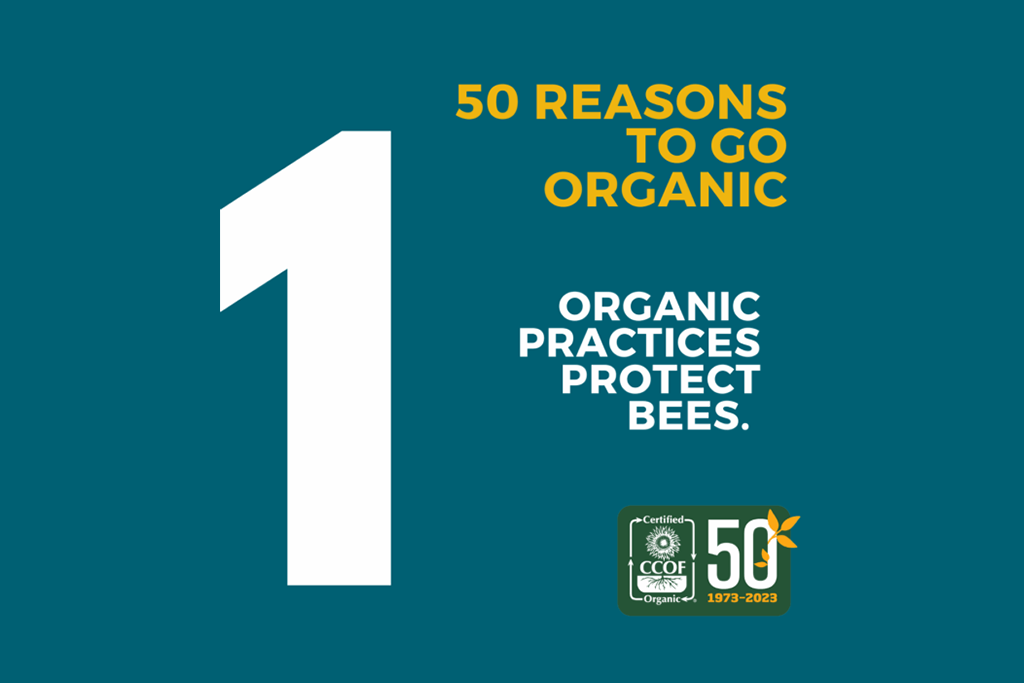As various states decriminalize or approve both medicinal or recreational cannabis, CCOF Certification Services is frequently asked to help ensure organic cannabis production. As an organization that envisions a world where organic is the norm, we would like to see cannabis production and processing meet organic standards. In fact, it is our understanding that the gray market nature of this production system has resulted in significant agricultural and chemical use issues.
Additionally, CCOF operations would like to consider cannabis as rotation, intercropping, or diversification options. An organic market and certification system for cannabis would offer incentives and ways to highlight the efforts of conscientious growers. In an effort to reduce conflict, CCOF will not decertify operations that grow cannabis on certified ground as long as they follow organic standards and provide full documentation and transparency, just as they would for any other crop.
At a federal level, cannabis and cannabis products remain classified as illegal drugs. Furthermore, the federal government has recently indicated an intention to aggressively enforce these laws.
As a certifier, we find ourselves in the middle of a states’ rights versus federalism conflict. As a federal program, CCOF is accredited by the USDA National Organic Program (NOP), which is answerable to the Justice Department and federal law and policy. As a result, at this time, CCOF cannot issue an NOP certificate to any product that is not federally legal. As a broad organization with many stakeholders, CCOF cannot risk negatively impacting all clients until the federal/state conflict is resolved or we receive clarification from the USDA.
Common questions include:
Will I lose my certification if I grow cannabis on CCOF-certified organic ground?
No. CCOF Certification Services does not consider this crop to be a prohibited material. However, we cannot certify it or list it on your certificate. If you disclose all production methods and operate in compliance with your organic system plan, land used to grow cannabis may remain certified organic. This will support rapid listing of crops on certificates, should the matter be resolved, or should we receive instructions from the NOP allowing us to do so.
Can CCOF certify hemp?
Yes. The 2018 Farm Bill legalized the domestic production of hemp and hemp derived products. This enables CCOF to certify hempand products containing ingredients derived from hemp such as CBD. Producers are responsible for ensuring hemp production and final products meet all Federal regulations including but not limited to the 2018 Farm Bill and FDA requirements for CBD production and sales. Contact CCOF if you wish to certify your hemp production or products.
Can CCOF certify CBD and/or products that contain CBD?
Possibly. Products made with Certified Organic CBD can be certified if all other ingredients and practices are complaint with USDA National Organic Program regulations. Cannabidiol (CBD) that is extracted from hemp (as defined in the 2018 Farm Bill) can be certified organic if the extraction process is compliant. Products containing CBD sourced from cannabis/marijuana can not be certified at this time. Producers making products that contain CBD are responsible for understanding and following all Federal regulations that apply to these products.
Can CCOF certify cannabis/marijuana edibles or extracts?
No. Cannabis/marijuana remains classified as an illegal drug by the Justice Department. As a Federally Accredited Certifier, we cannot provide USDA NOP certification to any products that contain cannabis/marijuana.
Want to learn more? Download the recording of our October 3, 2017 webinar, “Certified Organic Pot? Find Out Why Not!”.

